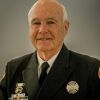Hurricane Dorian was the lead story on nearly every cable and local news outlet for weeks in September. We watched every data point from the Hurricane Hunters turn into projected paths. We agonized as the storm crawled across the Bahamas at a devastatingly slow 1 mph, raking the islands with winds of over 200 mph.
We watched as Dorian slowly turned northward to Florida and Georgia, where mandatory evacuations had taken place near the coast, and eventually chugged its way into the Carolinas, where it still had the energy to do significant damage.
During this time, the media paraded an endless number of hurricane experts and representatives of nearly every federal or state agency that was activated for the impending disaster. I heard countless interviews from representatives of the Department of Homeland Security, the Coast Guard, the National Guard and even the U.S. Army. But what really got me was hearing an interview with a representative of the Louisiana Cajun Navy (which claimed over 35,000 rescues during Hurricane Katrina) about its role in the disaster response.
Now understand that I have no quarrel with the Louisiana Cajun Navy, but seeing this interview made me question why there is no spokesperson for the fire service in all of this – someone speaking to our role in preparedness, response, mitigation and recovery to this oncoming hurricane.
In Florida, Georgia, South Carolina and North Carolina, there are over 2,500 fire departments and 100,000 firefighters – career, volunteer and paid-on-call. Who was going to tell their story of the days and nights at the fire station away from their families so that proper preparations could made? Who was going to remind the citizens of the sacrifices that firefighters were making for their community during the hurricane response? Who was going to remind their local officials, their state representatives, their congressional representatives or their senators that the basis for any successful response starts with firefighters?
Two officials recognize firefighters’ efforts
Fortunately, there were two examples of key officials recognizing the work of firefighters. FEMA acting administrator, Pete T. Gaynor, and the mayor of Charleston, South Carolina, the Honorable John Tecklenburg, each remembered to speak about the roles assumed by firefighters in the affected states.
Gaynor reminded everyone that FEMA is not a primary responder – that all disasters are managed from the local, regional and state level, and, most importantly, that FEMA is the conduit for additional resources requested via the National Incident Management System (NIMS) initiated and perfected by the U.S. fire service. Second, Mayor Tecklenburg, interviewed as Dorian was bearing down on his city, commended his firefighters for their initiative in the preparation of the city, and then included the other departments of the city for their roles as well. Note that in both instances these speakers spoke of firefighters and the fire service – not of “first responders” – a term that causes me to bristle at the very words that have robbed firefighters of our unique talents and responsibilities.
Speaking up for ourselves
So once again my thoughts went to the question: “Who speaks for the fire service?” What organization has the name recognition, the credentials, and represents all aspects of the fire service – career, volunteer, combination, military, federal and private fire departments? If one organization comes to mind, the question becomes, “Why isn’t there a spokesperson or series of spokespeople with the expertise to be called upon regarding a variety of topics, such as operations, disaster management or community risk reduction who is willing and able to discuss our fire service role in the major events of the day?
My first fire chief, Cloyce Snyder, never had more than a high school education, but was one of the wisest men I had ever met. To paraphrase Chief Snyder, if you don’t tell people what you do, why you do it, when you do it or how it impacts their daily lives, you’ll never have their support when you need it.
We are the fire service, and we provide the most caring, professional service under extremely difficult conditions 24/7/365 – and we’re there when disasters strike. But we also need to remind the public of all the services we provide and break the fantasy that we sit around the fire station playing checkers and patting our dog – Cinders, Ashes or Sparky – until the next fire occurs.
It’s time we took the initiative and informed the public of all we really do, especially when disaster strikes, or face a dismal future when the next set of preparedness funds are doled out after Dorian or the next disaster we face.
So again, think about who speaks for the fire service? Or perhaps better yet, who should be speaking for the fire service? The silence is deafening!
Stay safe!













